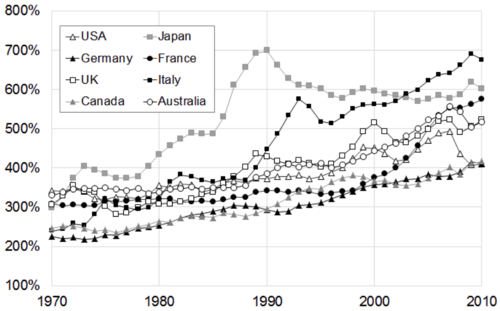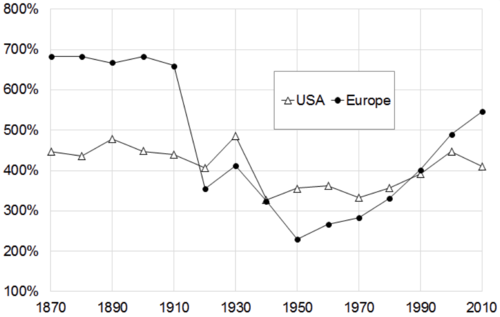A few months ago I discovered a wonderful little essay by Isaac Deutscher. (More about him later.) The essay is a review/response/critique of the famous 1949 volume “The God That Failed”. “The God That Failed” was one of the first of many subsequent examples of the literary field – “I used to be a lefty, but now I am wise”.
Deutsher lacerates the book beautifully.
There’s a pdf of it online which I link to above, but unfornately I can’t find a scanned version anywhere. Although, I did find a link to a geocities site where it used to be (the closer of geocities is something I’ll never understand), and I found a few little quotes from it, which I provide below…
Our ex-Communist now bitterly denounces the betrayal of his hopes. This appears to him to have had almost no precedent. Yet as he eloquently describes his early expectations and illusions, we detect a strangely familiar tone. Exactly so did the disillusioned Wordsworth and his contemporaries look back upon their first youthful enthusiasm for the French revolution:
Bliss was it in that dawn to be alive,
But to be young was very heaven!
The intellectual Communist who breaks away emotionally from his party can claim some noble ancestry. Beethoven tore to pieces the title page of his Eroica, on which he had dedicated the symphony to Napoleon, as soon as he learned that the First Consul was about to ascend a throne. Wordsworth called the crowning of Napoleon “a sad reverse for all mankind.” All over Europe the enthusiasts of the French revolution were stunned by their discovery that the Corsican liberator of the peoples and enemy of tyrants was himself a tyrant and an oppressor.
In the same way the Wordsworths of our days were shocked at the sight of Stalin fraternizing with Hitler and Ribbentrop. If no new Eroicas have been created in our days, at least the dedicatory pages of unwritten symphonies have been torn with great flourishes.
In The God That Failed, Louis Fischer tries to explain somewhat remorsefully and not quite convincingly why he adhered to the Stalin cult for so long. He analyzes the variety of motives, some working slowly and some rapidly, which determine the moment at which people recover from the infatuation with Stalinism. The force of the European disillusionment with Napoleon was almost equally uneven and capricious. A great Italian poet, Ugo Foscolo, who had been Napoleon’s soldier and composed an Ode to Bonaparte the Liberator, turned against his idol after the Peace of Campoformio—this must have stunned a “Jacobin” from Venice as the Nazi-Soviet Pact stunned a Polish Communist. But a man like Beethoven remained under the spell of Bonaparte for seven years more, until he saw the despot drop his republican mask. This was an “eye-opener” comparable to Stalin’s purge trials of the 1930’s.
There can be no greater tragedy than that of a great revolution’s succumbing to the mailed fist that was to defend it from its enemies. There can be no spectacle as disgusting as that of a post-revolutionary tyranny dressed up in the banners of liberty. The ex-Communist is morally as justified as was the ex-Jacobin in revealing and revolting against that spectacle.
And…
It seems that the only dignified attitude the intellectual ex-Communist can take is to rise _au-dessus de la melee_. He cannot join the Stalinist camp or the anti-Stalinist Holy Alliance without doing violence to his better self. So let him stay outside any camp. Let him try to regain critical sense and intellectual detachment. Let him overcome the cheap ambition to have a finger in the political pie. Let him be at peace with his own self at least, if the price he has to pay for phony peace with the world is self-renunciation and self-denunciation. This is not to say that the ex-Communist man of letters, or intellectual at large, should retire into the ivory tower. (His contempt for the ivory tower lingers in himself from his past.) But he may withdraw into a _watchtower_ instead. To watch with detachment and alertness this heaving chaos of a world, to be on a sharp lookout for what is going to emerge from it, and to interpret it _sine ira et studio_—this is now the only honorable service the ex-Communist intellectual can render to a generation in which scrupulous observation and honest interpretation have become so sadly rare. (Is it not striking how little observation and interpretation, and how much philosophizing and sermonizing, one finds in the books of the gifted pleiad of ex-Communist writers?)
And…
Worse still is the ex-Communist’s characteristic incapacity for detachment. His emotional reaction against his former environment keeps him in its deadly grip and prevents him from understanding the drama in which he was involved or half-involved. The picture of communism and Stalinism he draws is that of a gigantic chamber of intellectual and moral horrors. Viewing it, the uninitiated are transferred from politics to pure demonology. Sometimes the artistic effect may be strong—horrors and demons do enter into many a poetic masterpiece; but it is politically unreliable and even dangerous. Of course, the story of Stalinism abounds in horror. But this is only one of its elements; and even this, the demonic, has to be translated into terms of human motives and interests. The ex-Communist does not even attempt the translation.
In a rare flash of genuine self-criticism, Koestler makes this admission: “As a rule, our memories romanticize the past. But when one has renounced a creed or been betrayed by a friend, the opposite mechanism sets to work. In the light of that later knowledge, the original experience loses its innocence, becomes tainted and rancid in recollection. I have tried in these pages to recapture the mood in which the experiences [in the Communist Party] related were originally lived—and I know that I have failed. Irony, anger, and shame kept intruding; the passions of that time seem transformed into perversions, its inner certitude into the closed universe of the drug addict; the shadow of barbed wire lies across the condemned playground of memory. Those who were caught by the great illusion of our time, and have lived through its moral and intellectual debauch, either give themselves up to a new addiction of the opposite type, or are condemned to pay with a lifelong hangover.”
The entire essay is really beautifully written. I had heard Deutscher was a great writer and that is certainly in display in this essay. It makes me almost want to read his mammoth 3 volume biography of Trotsky.



